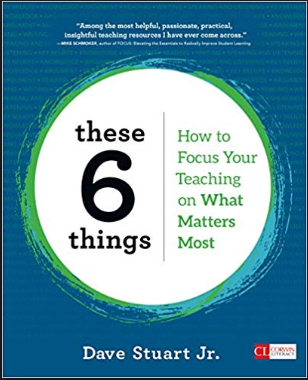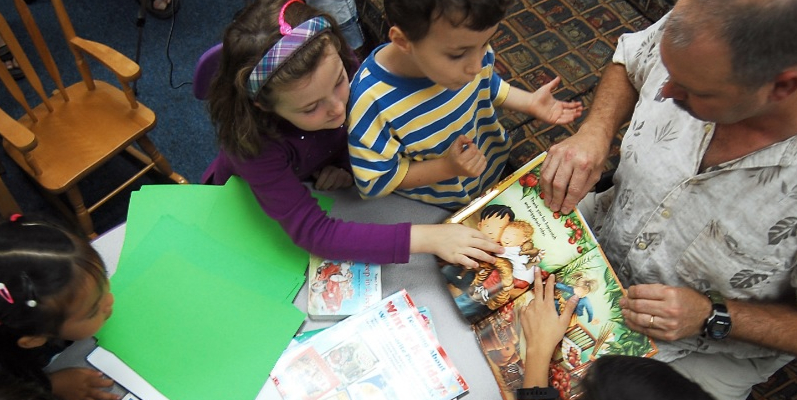This blog post was originally published back in 2018, but we need this discussion again. Many teachers are agonizing over their students and how well they’re prepared for various assessments at this time of year. Let’s have a reality check, shall we?
How many times did I have this conversation with someone throughout my almost three decades in education?
Standing in the hallway. “We don’t have to worry about *insert student name* because they’ll be exempt since they are a newcomer ELL, right? Those students won’t count for me, isn’t that correct?”
Around the table at a grade level data meeting. “Those six students’ early reading scores will be pulled out since they’re LEP, right? They don’t count for our grade level, do they?”
In the teacher’s lounge. “My class percentage won’t look so bad once all the kids that weren’t here on Snapshot Day are removed. Thank goodness *insert student names* don’t count.”
I know these people. They are dedicated, empathetic, highly trained teachers. It would never occur to them to say something that would intentionally hurt or disrespect a child. But conversations like the ones I shared above happen all the time and we have a lopsided accountability system to thank for that.
Lopsided. Twisted. Perverted.
When pressure on teachers, administrators and support staff is so great that we speak about students in ways that are less than charitable, we have to look closely at the system.
Accountability systems such as the “test, blame, punish” model we currently operate under work to intimidate teachers with unreasonable penalties. Everyone knows that threatening teachers results in the tendency to focus excessively on improving assessment scores. And, all too often, this hyper-focus on test scores leads to an increase in test-prep versus authentic instruction and learning in classrooms.

How can we recover from this unbalanced view of responsibility as an educator? It’s complicated, but I want to suggest a place to start.
I’ve followed Dave Stuart Jr. for several years now. He is a teacher, author, speaker and thought-leader. His work has deeply impacted my thinking (and, I hope, my practice) as an educator. Dave started out by exhorting teachers to adopt a common-sense approach to the Common Core.
Dave’s message has evolved to address more than a widely accepted curriculum. He has become a voice of reason in this crazy age of cock-eyed accountability. And thank goodness, Dave has published a book put out by Corwin Press that gives educators the world over a balanced narrative on the real work and sacred calling of teaching.
Tidbits from Dave’s book, These 6 Things: How to Focus Your Teaching On What Matters Most—
Let’s face it: none of us got into teaching for the impact we can make as measured by an end-of-the-year test; all of us got into it for the tiny contribution we hope our work can make to the life outcomes of our students, twenty years from now.
I need to admit something: I wrote this book for me. Or rather, for teachers like me who find themselves crushed between two conflicting beliefs. On one hand, we completely believe in the value of teaching. You don’t need to convince us that teaching is a noble calling, or that it’s worthy of a life’s work. So here is the book’s central argument: there’s a way to be both a strong teacher and someone who has a life and interests outside of school. That way starts with knowing why we’re here—the long-term flourishing of kids—and it will be fleshed out in the six chapters that follow this one
I think there are thousands of teachers who, like me, long to be told, “If you and your students are working on this handful of things, repeatedly and with increasing skill, throughout the school year as you move through your curriculum, you’re okay. You’re not a screw-up.”
So, am I right?
Do you need something that can tip the lopsided scales of the current accountability system in your favor? Do you need to know that as a teacher you are on the path to creating long-term flourishing for your students as opposed to agonizing over whether a handful of students “count”?
I know that we, as educators, believe every kid counts.
And I know that if we all sat down for a chat, our teacher-hearts would quickly reveal that we believe every child absolutely matters when it comes to getting the education (both academic and social-emotional learning) they all deserve. Just the opportunity to be with other like-minded educators and from the collegiality alone, we’d be able to assuage some of the heavy burden of pressure we feel due to the over-emphasis on testing and assessment results. But alas, we can’t necessarily convene for a much-needed get together. So instead…
Do yourself a favor. Pre-order a copy of Dave Stuart’s book, These 6 Things: How to Focus Your Teaching On What Matters Most.











